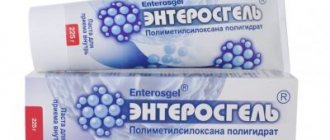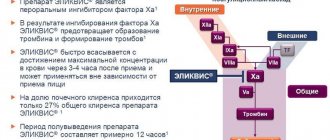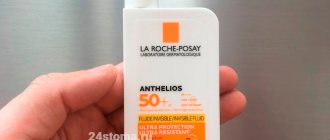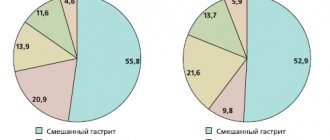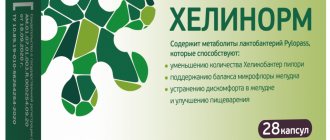As Viktor Maleev, adviser to the Research Institute of Epidemiology of Rospotrebnadzor, told RBC, effective means have not yet been created in the world and doctors use combinations of existing ones to treat coronavirus. The Ministry of Health specified which ones in the list of recommended drugs. These included hydroxychloroquine, interferon, lopinavir and ritonavir.
At the beginning of September, the Ministry of Health released the updated, eighth version of recommendations for the prevention, diagnosis and treatment of the new coronavirus infection COVID-19. Available infographics are published on the ministry’s website.
As experts note, the drugs umifenovir and recombinant interferon alpha (IFN-α) can be used to prevent coronavirus. After contact with someone infected with SARS-CoV-2, you should take hydroxychloroquine.
The material was commented on and checked by Natalya Valerievna Polenova, candidate of medical sciences, family doctor, cardiologist, pediatric cardiologist, nutritionist at GMS Clinic.
What we know about COVID-19
COVID-19 is an infectious disease caused by the coronavirus SARS-CoV-2. Discovered in China at the end of 2022, by May 15 it had infected 4.4 million people worldwide. Most of those with symptoms complain of fever, cough and difficulty breathing. Special medications and vaccines against COVID-19 have not yet been developed. However, virologist and head of the MIPT genome engineering laboratory Pavel Volchkov said that the first effective cure for coronavirus infection may appear in the fall.
In general, the Ministry of Health recommends the use of six drugs to treat coronavirus. these are favipiravir, remdesivir, umifenovir, hydroxychloroquine, azithromycin and interferon alfa.
What groups of drugs are classified as antiviral?
Antiviral drugs include very diverse drugs. Most of them are intended to treat a specific disease, which becomes one of the key criteria for classification. There are several groups of the most common antiviral drugs.
Anti-flu
The most numerous category of medicines. There are two main subgroups of drugs: neuraminidase inhibitors and M2 ion channel blockers. For greater clarity, it makes sense to give specific examples. The former include such well-known drugs as zanamivir and oseltamivir, the latter – amantadine and rimantadine.
The remaining anti-influenza drugs are included in a separate subgroup. These include: Kagocel, interferon, alpha-2b and many others. Interferons are often classified into a separate group, which is due to the presence of several varieties and high efficiency.
It is important to note that the name anti-influenza is very arbitrary. The fact is that such drugs are active against respiratory viruses, which cause almost all colds - influenza, ARVI, sore throat, etc.
Antiherpetic
Herpes is one of the most common diseases. Its main symptom is characteristic rashes that appear on some parts of the body, for example, the lips.
Antiretroviral
They are drugs that slow down and prevent the development of HIV infection. Their regular use prevents the destruction of the immune system.
Hydroxychloroquine and mefloquine
Doctors have been using drugs based on chloroquine for more than 70 years to treat malaria and autoimmune diseases (for example, systemic lupus erythematosus). Scientists have found that the active substance is also effective against the SARS-CoV-2 virus. In March, the Chinese holding Shanghai Pharmaceuticals provided Russia with the drug hydroxychloroquine (a derivative of chloroquine) for the treatment of COVID-19. The Ministry of Health did not identify any contraindications and allowed its use, donating more than 68 thousand packages to hospitals, despite the fact that hydroxychloroquine is not registered in Russia.
Scientists are still arguing about the validity of using hydroxychloroquine. Research by French infectious disease specialist Didier Raoult showed positive results. But the Associated Press published data from American studies. An analysis of medical records of patients treated with the drug showed that hydroxychloroquine was less effective than standard treatments.
In April, the Federal Medical and Biological Agency of the Russian Federation conducted clinical trials of mefloquine (an analogue of hydroxychloroquine approved in Russia). Scientists found out how effective and safe this antimalarial drug is. According to preliminary data from a study involving 347 patients, after using mefloquine, positive dynamics were noted in 78% of cases. The FMBA will provide its final conclusions at the end of May.
Description
Antiviral drugs, when they enter the body, begin to fight the virus, they help the immune system cope with the disease, or destroy it on its own. Let's consider 2 main types of such drugs.
Kinds
- Immunomodulators. These medications, when entering the baby’s body, do not fight the virus directly; they strengthen and support the immune system and the body itself copes with the disease. They are more beneficial for the immune system; after defeating the virus on your own, the immune system becomes stronger, and the likelihood of re-infection decreases several times. However, frequent use of such medications can have the opposite effect and the body stops fighting on its own.
- Virus suppressive substances. These are antiviral agents with an extended spectrum of action. Depending on the active substance included in the drug, they fight directly against the virus itself, killing it on their own. In this case, immunity has a auxiliary effect, the risk of recurrent disease is not reduced.
Release forms
- Nasal drops. These drops are convenient for use by children aged 2 years.
- Pills. This form is convenient to give to children from 5 years of age, who can already consciously swallow a tablet.
- Rectal suppositories. Suitable for the youngest patients. When an infant needs quick help, these candles effectively cope with their task.
- Powder for preparing a solution. Convenient to take with you, a teenager at the age of 10 can already dilute the powder and take medicine on his own.
- Syrup. They can be used at any age, most often they come with various flavoring additives, they are pleasant to take.
Lopinavir and ritonavir
A combination of antiviral drugs called kaletra is used to treat HIV. According to WHO, the use of the drug in combination with other medications is effective in the fight against coronavirus. At the end of January, the Ministry of Health included lopinavir with ritovinar in the list of drugs recommended for COVID-19 as antiviral therapy. As a result, the demand and sales of kaletra increased tenfold. Experts warn that uncontrolled use of the drug without a doctor's prescription can cause harm to health, including diarrhea and liver damage.
Chinese scientists have found that lopinavir and ritonavir are not effective in treating mild to moderate COVID-19. Taking medications does not improve the clinical picture; moreover, it may cause side effects. The experiment involved 86 patients, of which 34 people took a combination of lopinavir and ritonavir, and 17 patients did not receive any drugs. After two weeks, both groups showed similar results, but those taking the medications experienced side effects.
FAQ
What diseases are treated with antiviral drugs?
The main feature of viral diseases is their multiplicity and heterogeneity. They affect a variety of organs and systems of the human body, from the respiratory tract (influenza, ARVI, coronavirus) and liver (various types of hepatitis) to the nervous system (encephalitis) and mucous membranes (herpes).
What drugs are antiviral?
Considering the previous answer, it becomes clear that antiviral drugs combine a large group of drugs, both highly specialized and broad-spectrum. It is simply impossible to list everything. As well as giving a classification recognized by everyone - such heterogeneous and diverse drugs are considered antiviral.
How to choose the right antiviral agent?
The answer is extremely simple - by consulting a doctor. Most viral diseases are fraught with serious consequences, and therefore you should not self-medicate. Moreover, modern antiviral drugs have an extremely strong effect on the body, which, if used incorrectly, can cause significant harm.
What antiviral drugs are most commonly used?
The most popular drugs of this type in Russia are: Arbidol, Cycloferon, Triazavirin, Amiksin and many others.
Remdesivir
Remdesivir is used to treat Ebola fever. Canadian scientists from the University of Alberta have found that the drug blocks the reproduction of coronavirus. Studies have proven the effectiveness of the antiviral agent in the treatment of MERS respiratory syndrome and SARS-CoV, the RNA structure of which is similar to coronavirus. Virologists obtained identical results in the case of SARS-CoV-2, which causes COVID-19, and concluded that remdesivir could be used for treatment. The New England Journal of Medicine also published the results of a study in which the use of the drug improved the condition of 68% of patients. Japanese Prime Minister Shinzo Abe said in parliament on April 28 that he plans to authorize the use of remdesevir to treat COVID-19. In the United States, the drug was successfully tested, and on May 2, the Department of Sanitary Inspection issued an emergency permit for its use.
APN01
The Austrian biotechnology company APEIRON Biologics AG has begun clinical trials of the drug APN01, which was developed in the early 2000s. Scientists have discovered that the ACE2 protein, which is part of it, suppresses infections caused by viruses of the SARS group. It also helps protect the lungs during respiratory failure.
The authorities of Austria, Germany and Denmark agreed to conduct clinical trials of the drug. During the study, 200 patients with COVID-19 will receive APN01. Then virologists will evaluate the effect of the drug, and also analyze its effectiveness and safety for patients who require artificial ventilation.
Criterias of choice
Let's look at what to look for to avoid mistakes when choosing products:
- Age. The main criterion for selecting medications is the age of the child. The dosage inside the tablet or syrup is designed so that a certain amount of the drug falls on a certain weight (age). If a 3-year-old child is given a drug for the age of 6, there will be a severe overdose; if done the other way around, the effect of taking it will be minimal.
- Precautionary measures. It is necessary to strictly follow the instructions for use, which indicate how to give the baby the medicine and in what quantity.
- Active substance. Pay attention to the composition of the medicine. The active substance in it must correspond to the virus that your baby is sick with, otherwise there will be no effect from taking it.
- Where can I buy. Buying from an online store can significantly reduce your time costs, and sometimes medications are cheaper there than in a pharmacy. Ordering online is not difficult; you can have it delivered to your home or picked up at your nearest pharmacy.
- Which one is better to buy? The popularity of a model is not always justified by the effectiveness of the drug. Sometimes time-tested but not overly advertised products help more effectively than popular models and new products that constantly appear on the market.
- Doctor's prescription. Be sure to consult your doctor about possible contraindications before purchasing. Also, if the medicine is a prescription, your doctor will write a prescription.
- Price. Inexpensive (budget) products are sometimes not inferior to their expensive counterparts. Therefore, initially consult your doctor which medicine will be more effective. Don't overpay for the brand. Children's medications on the market have the highest percentage of counterfeits. Therefore, be careful to ask the seller for a certificate for the product.
Ribavirin
It is quite difficult to assess the effectiveness and safety of ribavirin. On the one hand, this drug inhibits the reproduction of the vast majority of viruses, on the other, the mechanism of action of ribavirin is not fully understood. At the end of January, the Ministry of Health recommended the use of this antiviral drug to treat coronavirus. It is prescribed to children for respiratory syncytial infection (a rare type of acute respiratory viral infection), which causes severe lung damage. The drug is used for severe influenza, for measles in children with immunodeficiency, and in combination with interferon ribavirin to treat viral hepatitis C.
However, Academician of the Russian Academy of Sciences Alexander Chuchalin criticized the recommendations of the Ministry of Health. When prescribing the drug to adults, it is necessary to take into account its teratogenicity (threat of disruption of embryonic development), therefore ribavirin is strictly contraindicated during pregnancy. Despite the fact that the drug inhibits the reproduction of many viruses, it is very toxic and causes many side effects.
At the end of March, the Ministry of Health excluded ribavirin from the list of recommended drugs for the treatment of COVID-19.
For what diseases are antiviral drugs prescribed?
The name of the group of drugs under consideration clearly demonstrates their main purpose - the treatment of numerous viral diseases, and in some cases - the prevention of such diseases. The most common viral infections include:
- flu;
- ARVI (acute respiratory viral infections);
- viral hepatitis (B and C);
- herpes;
- HIV and many others.
Classification of viral infections is usually carried out according to the organ or vital system on which they affect. This criterion allows us to divide diseases into the following categories:
- Respiratory . The upper respiratory tract is affected. The usual mode of transmission is airborne. The main symptoms are cough, runny nose, high temperature. Examples are influenza, adenoviruses, rhinoviruses, coronaviruses and many others.
- Gastrointestinal . The method of transmission is oral. The main symptoms are diarrhea and vomiting. Examples are rotaviruses, adenoviruses, astroviruses.
- Neurological . They affect the nervous system. Usually carried by insects. A typical example is encephalitis.
- Dermatotropic . Affects mucous membranes and skin. Often cause cancer. Examples: herpes, papillomas.
- Liver infections . Method of transmission: blood, oral, secretions. Includes five types of hepatitis.
It is important to note that the number of diseases caused by viruses is extremely large. As well as the number of drugs classified as antiviral. An additional and very significant point is the fact that many medicines have a narrow specialization, that is, they are aimed at treating a specific disease. Therefore, their appointment is made exclusively by a doctor who is professionally versed in this issue.
Ivermectin
Australian scientists from Monash University and the Royal Melbourne Hospital have discovered an antiparasitic agent that virtually destroys the SARS-CoV-2 virus within 48 hours, reducing its presence by 99%. According to researchers, the use of ivermectin will help avoid severe complications of COVID-19, as well as prevent the spread of the virus. During the experiments, ivermectin was added to cells infected with SARS-CoV-2. After 24 hours, the proportion of viral RNAs decreased by 93%, and after 48 hours, the presence of the virus decreased by 99%.
A single treatment with ivermectin can reduce the virus by 5 thousand times in 48 hours, scientists say. The drug is approved by WHO.
Symptoms of ARVI in children
The child or the child’s parents may notice signs such as:
- Acute onset of the disease, accompanied by a rise in body temperature. Typically, body temperature fluctuates between 37.5-38.0 degrees. Usually the temperature reaction disappears after 2-3 days. A prolonged increase in temperature may indicate influenza or an adenovirus infection. Parents should remember that an increase in temperature over time and increased intoxication in the baby (weakness, lethargy, malaise) may indicate the addition of a bacterial infection. A repeated increase in the baby’s temperature after it has stopped may indicate the development of acute otitis media against the background of a prolonged runny nose.
- Nasal congestion, nasal discharge.
- Burning, pain, tingling, dry throat. Often, an accumulation of mucus, flowing down the back of the throat, can lead to a cough.
- Noise and pain in the ears, hearing loss, clicking. These symptoms develop when inflammation spreads to the auditory tubes.
- Infants become restless and have difficulty feeding and falling asleep.
- Hoarseness may occur.
- Redness of the eyes.
Signs of ARVI persist for 5-7 days, in some cases reaching 10-14 days.
Nelfinavir
Nelfinavir is used in combination with other antiviral drugs to treat HIV. The study was carried out by Japanese scientists. According to the data obtained, the drug is able to block the reproduction of SARS-CoV-2. Virologists studied nine similar drugs and found that nelfinavir is effective even in small doses. Therefore, it is recommended to include it in the list of potentially effective drugs for the treatment of COVID-19.
What to do while there is no vaccine
- wear medical masks when visiting public places;
- on the street and in crowded places, maintain a distance of at least 1.5 m from others;
- avoid contact with people who have been exposed to the virus;
- stay at home if possible;
- wash your hands thoroughly with soap;
- use a disinfectant with an alcohol content of at least 60%;
- do not touch your face;
- monitor hygiene in the house.
How to choose antiviral drugs
Self-administration of antiviral drugs can hardly be called the correct method of treatment, regardless of the type of disease and the characteristics of its course. The best course of action is to consult a doctor, especially in a situation where the patient is a child or a pregnant/lactating woman.
The main criterion for choosing a suitable drug is the type of viral disease. It is determined based on symptoms that are very different, for example, for herpes, hepatitis B and influenza. Therefore, you should take the issue as seriously and responsibly as possible, do not self-medicate and entrust the solution to professional doctors.
Expert commentary
What medications, besides antiviral drugs and antibiotics, are recommended for the treatment of COVID-19 by the Russian Ministry of Health?
According to the eighth version of the resolution “Prevention, diagnosis and treatment of new coronavirus infection (COVID-19)” of the Ministry of Health of the Russian Federation, patients infected with the SARS-CoV-2 virus should receive pathogenetic and supportive symptomatic therapy if necessary. The first group of drugs includes, first of all: glucocorticosteroids (GCS), interleukin inhibitors (tocilizumab, canakinumab), anticoagulants (enoxaparin, fraxiparin).
Glucocorticosteroids are able to prevent the release of cytokines, substances responsible for the development of a violent inflammatory reaction, which can lead to a very dangerous complication “cytokine storm”. GCS may be useful in the treatment of severe forms of COVID-19 to prevent irreversible tissue damage and uncontrolled multiple organ failure.
It should be noted that for mild to moderate severity of the disease, that is, for patients not receiving oxygen, GCS are not indicated. So there is not the slightest need to buy hormones from pharmacies for use at home.
Drugs from the group of cytokine inhibitors are used when the lung parenchyma is damaged by more than 50%, that is, stage CT-3, CT-4 in combination with signs of increasing intoxication: long-term fever, very high levels of inflammatory markers in the blood.
In groups of patients at high risk of thrombus formation, for the prevention of so-called coagulopathies, it is advisable to prescribe anticoagulants used subcutaneously. Evidence of the effectiveness of oral anticoagulants for COVID-19 is not yet sufficient, however, if the patient was taking them before the disease, the drug should be continued until then. High-risk groups include patients with cardiovascular pathology, diabetes, and obesity.
How is symptomatic treatment of coronavirus carried out?
Drugs for symptomatic treatment of COVID-19 include antipyretic drugs, antitussive drugs that improve sputum discharge. Paracetamol is recognized as the safest antipyretic drug.
There is no need to wait until a certain level of fever is reached before using an antipyretic drug. In the presence of headache and muscle pain, poor tolerance to symptoms of intoxication and fever, it is possible to use drugs even at a relatively low body temperature.
What can you take to prevent coronavirus?
The most important characteristics of a diet that helps strengthen the immune system are: adequate daily calorie intake, sufficient intake of protein and a number of micronutrients, especially vitamin C, D, A, iron and zinc, increased intake of dietary fiber and, if necessary, probiotics, maintaining water balance. According to the clinical recommendations of the Russian Association of Endocrinologists, to prevent vitamin D deficiency in adults aged 18-50 years, it is recommended to receive at least 600-800 IU of the vitamin per day. People over 50 years old - at least 800-1000 IU of vitamin D per day.
There are some indirect indications of zinc's potential antiviral effect against COVID-19, although their biomedical relevance remains to be explored. Based on recent data on the clinical course of the disease, it appears that zinc may have protective effects against COVID-19 by reducing the incidence of pneumonia, preventing ventilator-induced lung injury, and improving antibacterial and antiviral immunity, especially in older adults.
Ascorbic acid (vitamin C, AA) takes part in such vital physiological processes as hormone production, collagen synthesis, stimulation of the immune system, etc. The latter effect can be due to both the direct antiviral effect of AA and its anti-inflammatory and antioxidant properties.
Umifenovir
Trade names: “Arbidol”, “Arpeflu”, “Orvitol”, “Afludol”. Arbidol has a controversial reputation, because once it appeared, the evidence base for this antiviral drug was insignificant. But recently, the number of studies on the effectiveness of Arbidol has increased. There is a lot of evidence that umifenovir fights influenza viruses, enteroviruses, and seasonal colds. Studies have shown that umifenovir reduces the duration of the disease by 1.7-2.65 days, while reducing the risk of complications from ARVI and influenza by 4 times.
"Arbidol" is indicated for children from 2 years of age (the drug is sold in powder for preparing a suspension). There is also Arbidol in capsules and tablets.
Contraindications include: pregnancy and intolerance to the drug. Known side effects: allergic reactions.
Umifenovir
OZON, Russia
Umifenovir is used for the prevention and treatment of influenza A and B and other acute respiratory viral infections in adults and children from 3 years of age (for the dosage form of a capsule of 50 mg), from 6 years of age (for the dosage form of a capsule of 100 mg).
As a complex therapy for acute intestinal infections of rotavirus etiology in children over 3 years of age (for the dosage form of a capsule 50 mg), from 6 years of age (for the dosage form of a capsule 100 mg). Complex therapy of recurrent herpes infection. Prevention of postoperative infectious complications. from 102
1.5 2 reviews
562
- Like
- Write a review

